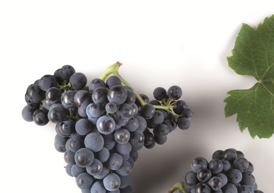By Alex Rayón Jerez (Co-founder and CEO of brainandcode.tech, Vice Chancellor of International Relations and Digital Transformation, and Professor at the University of Deusto, he is one of Spain's leading AI experts).
In ancient Mesopotamia, a small winemaking business struggled to create an exquisite wine. One day, a wise elder revealed a magical trick: add a drop of water from the mineral-rich Euphrates River right at dawn. Following this advice led to perfect fermentation, enhancing the wine's aromas and flavors. The result was an exceptional wine that soon gained fame. Thus, the company discovered that the union of science and magic could transform its destiny.
This fable, in case you’re wondering, was not crafted by my biological intelligence but rather by the digital intelligence of ChatGPT4-o (the latest generative machine known at the time of writing). For clarity, I’ll continue referring to Artificial Intelligence (AI), although I believe current capabilities are worthy of being called intelligence, without the “artificial” qualifier. This intelligence aims to create systems capable of learning, reasoning, and perceiving similarly to humans. The ultimate goal of AI research has always been to create a machine that mimics the human brain and can be as intelligent, or more so, than a person. Now, AI is finally making its way into organizations and society. For a company dedicated to wine production and commercialization, it enables a great many tasks to be performed more efficiently at every stage of the process, from production to sales. Let’s break it down:
In the production phase, generative AI can analyze vast volumes of climate and soil data to predict optimal conditions for vine cultivation, enabling precise adjustments in irrigation, fertilization, and pest protection. Additionally, AI can create predictive models for crop yield, helping vintners make informed decisions and reduce risks.
In the winemaking phase, AI can optimize recipes and fermentation processes through historical data analysis and scenario simulation. This allows for improved wine quality by adjusting factors such as temperature and fermentation time to produce wines with desired flavor profiles.
In the marketing phase, generative AI can personalize marketing campaigns by analyzing consumer data. It can create engaging and relevant content, like product descriptions and pairing suggestions, tailored to different market segments. Moreover, it can predict consumption trends, allowing companies to adjust their offerings and sales strategies in real time.
In the distribution and logistics phase, AI can optimize delivery routes and efficiently manage inventories, reducing costs and improving delivery times. AI can also forecast demand in different regions, ensuring products reach the right markets at the right time.
In summary, AI not only improves efficiency and quality at each stage of the process but also enables greater personalization and optimization of the customer experience, positioning the company at the forefront of innovation in the wine industry. However, we cannot overlook this technology’s environmental impact. Gerry McGovern is a leading expert on the intersection of digital technologies and the environment, and author of the book World Wide Waste. According to his (sample-based, naturally) calculations, 90% of all data ever created and systematized by humanity was generated between 2017 and 2019. Then came the era of Generative AI. My first article on GPTs in the press (not in my thoughts) dates back to September 2020. The timing aligns. AI needed data to grow into what it is today. To transform that data, we require large physical data centers—sprawling infrastructures with servers that generate significant heat. They need cooling, which, without a doubt, does not help the planet. Spain has few data centers, but it does face serious water scarcity issues in the coming years, as temperatures will continue to rise.
Nevertheless, when we talk about Artificial Intelligence, we must remember that we are discussing computer programs (code) designed, developed, and maintained by people so that these programs influence other people. Artificial Intelligence is more human than technological. There are no magical elements involved. It is not plausible that this technology, made by humans for humans, would end us. Nor is it likely to surpass us. Nor will a new species emerge that is not subject to the laws of natural evolution. What would Darwin think of us if he saw us today, discussing this? It is true that AI allows us to do new things: we relate differently, we communicate differently, etc. But, at heart, the concern lies elsewhere—that a group of humans might gain advantages and control over another group of humans.
























